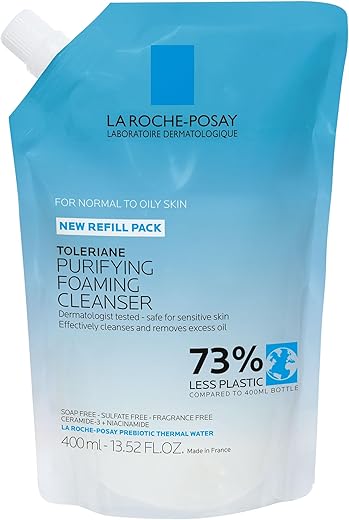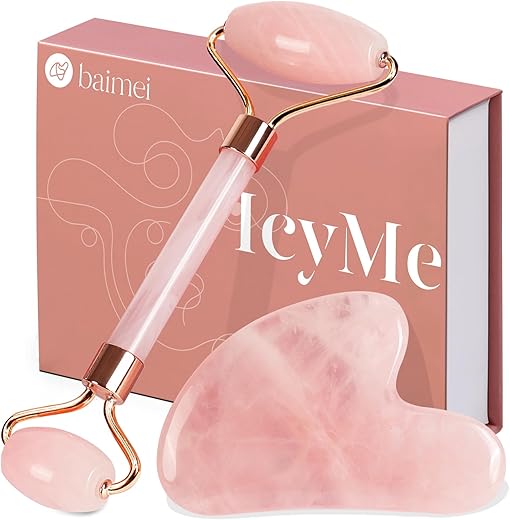
The Importance of Moisturizing with Facial Night Cream Before Bed
Imagine waking up with dry, dull skin, feeling as if the day has already taken its toll on your face. Your reflection in the mirror reveals fine lines and a lack of radiance, leaving you feeling self-conscious and less confident. We’ve all been there, and it’s time to put an end to this cycle. In this blog post, we will delve into the importance of moisturizing with a facial night cream before bed, unlocking the secrets to achieving healthy, glowing skin that will make you feel like the best version of yourself. So, let’s dive in and discover the transformative power of this simple but essential skincare step.
Discover the top-rated facial night creams for radiant and rejuvenated skin






What is Facial Night Cream?
When it comes to skincare, finding the right products for your nighttime routine is just as important as those you use during the day. One essential product that should not be overlooked is facial night cream. Designed to work while you sleep, facial night cream provides numerous benefits for your skin. In this blog post, we will explore what facial night cream is, its purpose, key ingredients to look for, and how it differs from regular moisturizers.


Purpose of Facial Night Cream
Facial night cream is specifically formulated to nourish and repair your skin while you sleep. During the nighttime, your skin goes into repair mode, and this is when the cream can work its magic. Here are some of the key purposes of facial night cream:
- Hydration: Night creams provide intense hydration to replenish moisture lost during the day, leaving your skin plump and supple.
- Repair: The active ingredients in night creams help repair and rejuvenate your skin by stimulating collagen production and improving cell turnover.
- Anti-aging: Many night creams contain ingredients that target signs of aging, such as fine lines, wrinkles, and age spots, helping to reduce their appearance and promote younger-looking skin.
- Brightening: Some night creams also contain ingredients like vitamin C or niacinamide, which help even out skin tone and promote a radiant complexion.
- Soothing: Night creams often have soothing ingredients like chamomile or aloe vera to calm any irritation or redness.
Key Ingredients to Look for
When choosing a facial night cream, it’s important to pay attention to the key ingredients. Here are some ingredients to look for and their benefits:
- Retinol: A powerhouse ingredient for anti-aging, retinol helps stimulate collagen production, reduce wrinkles, and even out skin tone.
- Hyaluronic Acid: This hydrating ingredient can hold up to 1000 times its weight in water, providing intense moisture and plumping the skin.
- Peptides: Peptides are amino acids that help stimulate collagen production, improving skin elasticity and reducing the appearance of wrinkles.
- Vitamin C: Known for its brightening properties, vitamin C helps fade dark spots, even out skin tone, and protect against environmental damage.
- Niacinamide: This multitasking ingredient helps regulate oil production, minimize pores, and improve skin texture and tone.
- Antioxidants: Look for ingredients like green tea extract or vitamin E, which help protect the skin from free radicals and environmental stressors.
How Facial Night Cream Differs from Regular Moisturizers
While regular moisturizers provide hydration, facial night creams are specifically formulated to address the unique needs of your skin at night. Here are some key differences between facial night creams and regular moisturizers:
- Texture: Night creams are often richer and thicker in texture compared to regular moisturizers, as they are designed to provide deep hydration and nourishment.
- Active Ingredients: Facial night creams contain higher concentrations of active ingredients, such as retinol or peptides, that work to repair and rejuvenate the skin during the night.
- Absorption: Night creams are formulated to be absorbed slowly, allowing the active ingredients to penetrate deeply into the skin over time.
- Overnight Benefits: The purpose of a facial night cream is to take advantage of the skin’s natural repair processes during sleep, providing targeted benefits like anti-aging or brightening.
| Facial Night Cream | Regular Moisturizer | |
|---|---|---|
| Purpose | Repair, hydrate, anti-aging | Hydrate, protect |
| Key Ingredients | Retinol, hyaluronic acid, peptides, vitamin C, niacinamide, antioxidants | Hyaluronic acid, ceramides, antioxidants, SPF (daytime) |
| Texture | Rich and thick | Light and easily absorbed |
| Absorption | Slow absorption | Quick absorption |
| Overnight Benefits | Targeted repair and rejuvenation | General hydration |
In conclusion, facial night cream plays a crucial role in any skincare routine. By understanding its purpose, key ingredients, and how it differs from regular moisturizers, you can choose the right night cream to suit your skin’s needs. Incorporating a facial night cream into your nighttime routine can help you wake up to nourished, rejuvenated, and radiant skin. So, why not give it a try and experience the benefits for yourself?
Benefits of Moisturizing Before Bed
As we go about our busy lives, it can be easy to neglect our skincare routine, especially when it comes to moisturizing before bedtime. However, taking a few minutes each night to pamper your skin with a facial night cream can yield numerous benefits. In this blog section, we will explore the advantages of moisturizing before bed and why it should be an essential part of your skincare routine.



1. Hydrates and Nourishes the Skin
One of the primary benefits of using a facial night cream before going to sleep is the deep hydration it provides. Throughout the day, our skin is exposed to various environmental factors that can cause dryness and moisture loss. Applying a night cream helps to replenish and lock in moisture, giving your skin a much-needed hydration boost.
Key points:
- Night creams contain ingredients such as hyaluronic acid and ceramides, which help to attract and retain moisture.
- Hydrated skin appears plumper, smoother, and more youthful.
2. Reduces Signs of Aging
Another significant advantage of moisturizing before bed is its ability to combat and reduce signs of aging. As we age, our skin loses elasticity and firmness, leading to the formation of wrinkles and fine lines. A well-formulated night cream can help address these concerns by promoting collagen production, improving skin elasticity, and minimizing the appearance of fine lines.
Key points:
- Night creams often contain anti-aging ingredients like retinol, peptides, and antioxidants, which help to stimulate collagen synthesis.
- Regular use of a night cream can result in firmer, more youthful-looking skin.
3. Improves Overall Skin Texture and Tone
If you desire smoother, more even-toned skin, incorporating a facial night cream into your bedtime routine is crucial. Night creams are specially formulated to work overnight, when the skin’s natural repair process is most active. By using a night cream regularly, you can expect improved skin texture, reduced hyperpigmentation, and a more even complexion.
Key points:
- Night creams often contain ingredients like niacinamide and alpha-hydroxy acids (AHAs), which help to exfoliate dead skin cells and promote cell turnover.
- Regular use of a well-formulated night cream can lead to a smoother, more radiant complexion.
Choosing the Right Facial Night Cream
When it comes to skincare, choosing the right facial night cream is crucial for maintaining a healthy and radiant complexion. A good night cream not only hydrates and nourishes your skin but also targets specific concerns and helps repair and rejuvenate while you sleep. With so many options available in the market, it can be overwhelming to find the perfect one for your individual needs. Here are some tips to help you make an informed decision.



Determine Your Skin Type
Understanding your skin type is the first step in choosing the right facial night cream. Different skin types have different needs, and using the wrong product can lead to adverse effects. Here are the most common skin types and the suitable night creams for each:
- Dry Skin: Look for night creams that are rich in moisturizing ingredients like hyaluronic acid, shea butter, and ceramides. These ingredients help replenish and lock in moisture, preventing dryness and flakiness.
- Oily Skin: Opt for lightweight, oil-free night creams that are non-comedogenic. Ingredients like salicylic acid, niacinamide, and tea tree oil can help regulate oil production and prevent clogged pores.
- Combination Skin: Choose a night cream that strikes a balance between hydration and oil control. Look for formulas that are lightweight yet moisturizing, and avoid heavy oils or greasy textures.
- Sensitive Skin: Go for gentle, fragrance-free night creams that are specifically formulated for sensitive skin. Look for soothing ingredients like aloe vera, chamomile, and oat extract to prevent irritation or redness.
Address Your Concerns
In addition to your skin type, it’s important to consider any specific concerns you may have. Here are some common skincare concerns and the ingredients to look for in a night cream:
- Anti-Aging: If your main concern is reducing fine lines, wrinkles, and promoting firmness, look for night creams with ingredients like retinol, peptides, vitamin C, and hyaluronic acid. These ingredients help stimulate collagen production and improve skin elasticity.
- Brightening: To achieve a more radiant and even complexion, opt for night creams that contain ingredients like vitamin C, kojic acid, licorice extract, and niacinamide. These ingredients help fade dark spots, even out skin tone, and provide a healthy glow.
- Acne-Prone: For those dealing with acne or frequent breakouts, look for night creams that contain ingredients like salicylic acid, benzoyl peroxide, tea tree oil, or sulfur. These ingredients help unclog pores, reduce inflammation, and control acne-causing bacteria.
Read the Labels
When shopping for a facial night cream, it’s essential to check the ingredients label. Here are a few things to keep in mind:
- Avoid Potential Allergens or Irritants: If you have known sensitivities or allergies to certain ingredients, be sure to avoid products that contain them. Common allergens include fragrances, essential oils, and certain preservatives.
- Look for Key Ingredients: Look for specific ingredients that cater to your skin type and concerns. Consider the potency and concentration of these ingredients to ensure they are effective.
- Consider the Formula: Pay attention to the texture and consistency of the night cream. Some people prefer lightweight, gel-like textures, while others prefer richer creams. Choose a formula that suits your preferences and skin needs.
Do Your Research
Before purchasing a facial night cream, do some research and read reviews from trusted sources or other customers. This will give you a better understanding of the product’s efficacy, potential side effects, and overall customer satisfaction. Consider factors like price, brand reputation, and availability as well.
Incorporating Facial Night Cream into your Skincare Routine
Taking care of your skin is essential for maintaining a healthy and youthful appearance. While daytime skincare routines often focus on protecting the skin from external factors, nighttime skincare routines allow for deep nourishment and rejuvenation. One important step in your nighttime routine is incorporating a facial night cream. In this blog post, we will walk you through the process of incorporating a facial night cream into your skincare routine, emphasizing the importance of consistency and proper application techniques.



Step 1: Cleanse Your Face
Before applying any skincare product, it is crucial to start with a clean canvas. Begin your nighttime routine by thoroughly cleansing your face to remove dirt, makeup, and any impurities that may have accumulated throughout the day. Use a gentle cleanser that suits your skin type, and ensure your face is completely dry before proceeding to the next step.
Step 2: Tone Your Skin
Toning is an often overlooked step, but it plays a vital role in preparing your skin for the absorption of the night cream. Apply a toner to a cotton pad and gently swipe it across your face and neck. Toners help balance the skin’s pH, tighten pores, and remove any remaining traces of dirt or cleanser.
Step 3: Apply the Facial Night Cream
Now that your skin is prepped and ready, it’s time to apply your facial night cream. Here’s how:
- Scoop out a small amount of the cream onto your fingertips.
- Gently massage the cream onto your face and neck using upward, circular motions.
- Pay extra attention to areas that need extra hydration, such as the cheeks and forehead.
- Be careful not to pull or tug on your skin, as this can contribute to premature aging.
- Allow the cream to fully absorb before moving on to the next step.
Step 4: Eye Cream Application
While not directly related to the facial night cream, applying an eye cream is an important step in your skincare routine. Using your ring finger, gently dab a small amount of eye cream around your eye area, focusing on the under-eye bags, crow’s feet, and fine lines. This step helps combat signs of aging and keeps the delicate skin around your eyes hydrated.
Step 5: Lock It In with a Moisturizer
To seal in all the goodness of your facial night cream, finish off your routine with a lightweight moisturizer. Apply a small amount of moisturizer to your face and neck, using gentle upward strokes. This step helps create a protective barrier, preventing moisture loss and ensuring your skin stays hydrated throughout the night.
The Importance of Consistency
Consistency is key when it comes to skincare. Incorporating a facial night cream into your routine is not a one-time solution. To reap the benefits, it is crucial to use the product consistently. Nighttime is the perfect opportunity for your skin to repair and regenerate, and a consistent skincare routine enhances this process.
Benefits of Facial Night Cream
Using a facial night cream offers numerous benefits for your skin. Here are some key points to consider:
- Hydration: Night creams are formulated with ingredients that deeply hydrate the skin, replenishing moisture lost during the day.
- Nourishment: These creams are designed to deliver essential nutrients and vitamins to your skin, helping it stay healthy and vibrant.
- Anti-aging properties: Many night creams contain ingredients like retinol, peptides, and antioxidants, which help reduce the appearance of fine lines, wrinkles, and other signs of aging.
- Skin repair: Nighttime is when your skin repairs and regenerates. A good night cream aids in this process by boosting collagen production and promoting cell turnover.
Table: Key Ingredients to Look for in a Facial Night Cream
| Ingredient | Benefits |
|---|---|
| Retinol | Fights signs of aging, reduces wrinkles, and improves texture |
| Hyaluronic Acid | Provides deep hydration and plumps the skin |
| Vitamin E | Nourishes and protects the skin from free radicals |
| Peptides | Stimulates collagen production and promotes skin elasticity |
| Antioxidants | Helps repair and prevent damage from environmental stressors |
Incorporating a facial night cream into your skincare routine is a simple yet effective way to care for your skin. By following these steps and being consistent in your application, you can wake up with hydrated, nourished, and rejuvenated skin every morning. So, make it a habit and let your night cream work its magic while you sleep!
The Final Verdict: Why You Should Never Skip Moisturizing with Facial Night Cream
To sum it up, incorporating a facial night cream into your bedtime routine is crucial for achieving and maintaining healthy skin. By diligently following a skincare regimen and selecting suitable products, you can experience the advantages of increased moisture, diminished aging signs, and revitalized skin.

Hey, I’m Ava Wilson—a skincare enthusiast and a certified esthetician. I’m dedicated to sharing my knowledge and empowering others to achieve healthy, glowing skin through simple, effective routines and natural remedies. Join me on this exciting skincare journey, and let’s unlock your skin’s potential for a confident, beautiful you.





